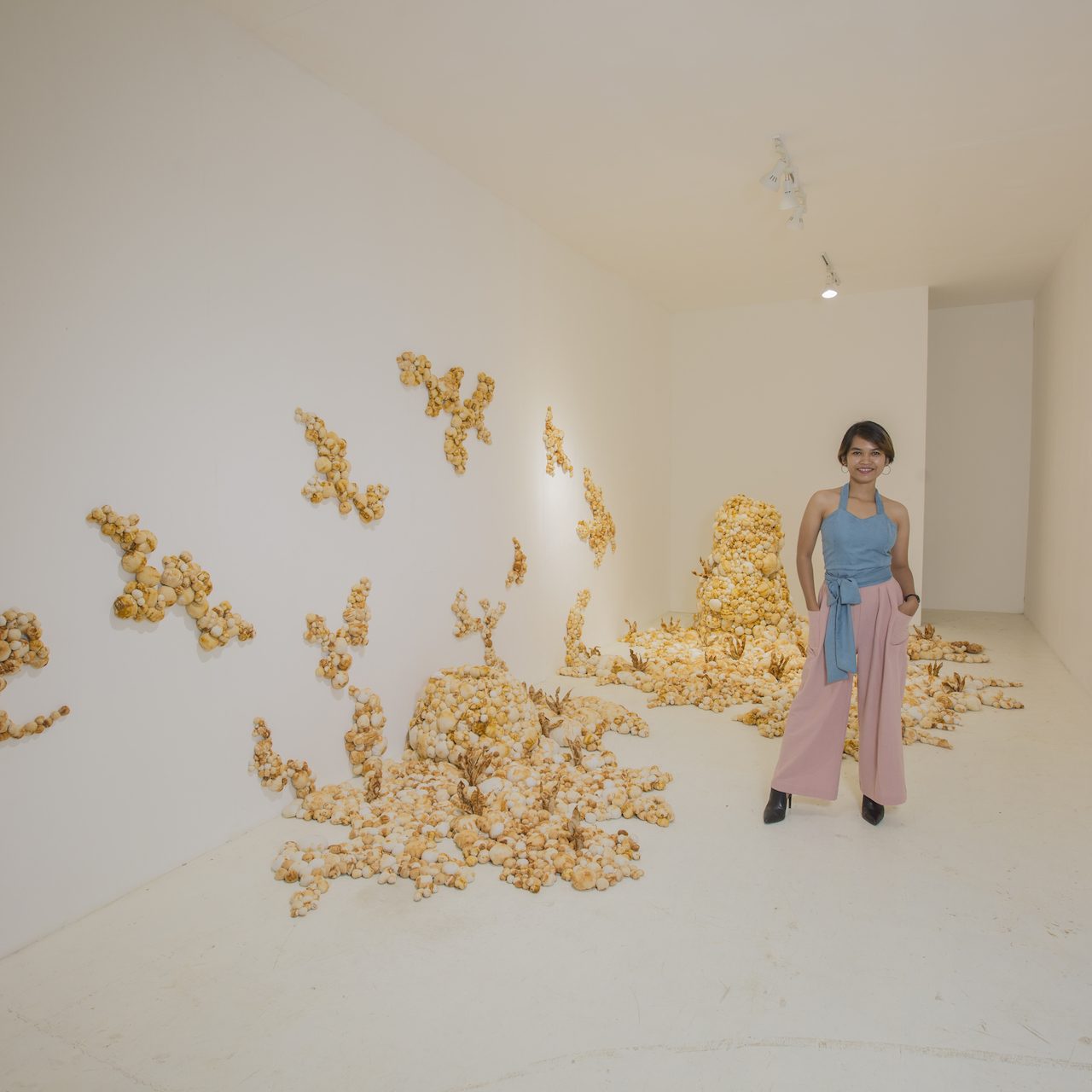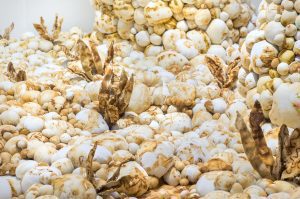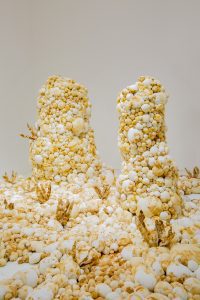Meta Enjelita (Indonesia-Yogyakarta)
Meta Enjelita (b. 1994 in Jungkat, West Kalimantan). After completing her formal education in the Department of Crafts of the Indonesian Institute of the Arts (ISI) of Yogyakarta majoring in textile, the artist from Borneo chose to settle and work in Yogyakarta. In her artworks, Meta studied hidden meanings that intersect with aesthetic sensibility of textile, legitimacy, and implementation.
With an eco-art background, she is interested in the natural transformation process of corrosion on iron as a textile dye which might lead to endless possibilities in exploration. Her artistic practices involve experimenting and exploring textures with textile, connecting it with landscape details. Meta has collaborated with several sculptors to create a large-scale outdoor sculpture installation entitled “Andante Con Espressione” which was exhibited in the Jogja Street Sculpture #3.
Her work entitled “Ground Fire” has just been shown in the Mantra exhibition, Asana Bina Seni program, Pra Biennale Jogja XVI Equator #6 2021. Several other art events that have featured her work including: Matra Kriya Fest 2020 Nusantara in Slice, Pendhapa Art Space, Yogyakarta (2020), Kembulan 3 Nguwongke Art Exhibition, Galeri R.J.Katamsi,Yogyakarta (2020), Distorsi Harmoni Tiga Art Exibition, Ballroom Jepara Ourland Park, Jepara (2019).
“a zone of the not yet-not yet mapped” (2021)
Rust-dyed fabric Installation
Variable size
This installation departed from the peat land issue in West Kalimantan, the place where Meta grew up. Around 98 percent of forest and peatland fires in Indonesia occur due to human activities, either intentionally or by negligence. Improper management of peatlands, such as land clearing practices for agriculture and plantations, are some examples.
This textile installation is trying to capture the post-fire damage of ecosystems in peat forests. Through this work Meta tries to depict the complexities of the landscape produced by the practices of space conquest and territorialization amidst the strong current of investment as well as exploitation of natural resources. This work represents the selfishness of human beings towards the environment. It describes the post-colonial state view on the restoration efforts undertaken amid the spread of extractive capitalism that converts the complex social system into a mere technical means of development.



